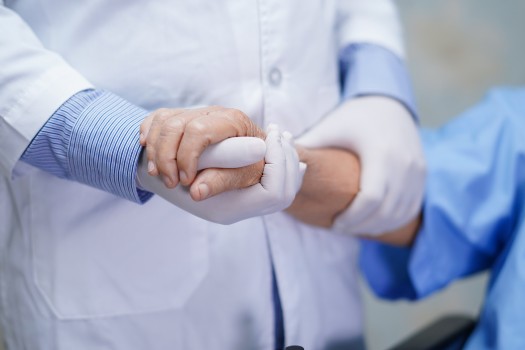GPs are not required to verify deaths in person during the Covid-19 pandemic but are expected to provide remote clinical support, according to new emergency Government guidelines.
The new guidance on how to confirm expected deaths outside of hospital during the Covid-19 pandemic states that non-medical professionals are able to carry out verification if they are helped remotely by a clinician guiding them through a set of checks.
During core practice hours, a GP from the deceased patient’s practice should provide remote assistance, but outside of core hours NHS 11 should be called so a clinician can go through the checks remotely.
However, the guidance stresses that non-medical professionals ‘should not experience any pressure to verify deaths’ and if they are not comfortable doing so with remote support then they should defer to the patient’s GP, NHS 111 or other primary care provider.
Under current laws in England, any competent person is able to verify death.
The Government said its new guidance is designed to clarify existing practice for the verification of death outside of hospitals and also provide a safe framework during the pandemic.
In cases where a non-medical professional verifies a death with remote support, this is ‘usually and normally independent of family members’, said the guidance.
The guidance also added: ‘This [remote approach] helps avoid long delays in waiting for verification before the deceased person can be moved when medical practitioners are unavailable, which can be distressing for their families and those close to them.’
The new guidance is applicable to both confirmed and unconfirmed Covid-19 cases and all adult deaths in all settings, except for when a case must be reported to the coroner.
It comes following a dispute between the BMA and some coroners over whether a trained GP or other healthcare professional should have to physically attend a patient to verify death.
Coroners in London admitted that while the law does not require a certain person to confirm someone has died, it is their belief this should only be done by ‘a healthcare professional who has undertaken the appropriate training’.
But the BMA argued remote verification is possible, to avoid doctors being taken away from frontline care and also risking potential transmission of coronavirus.
The guidance, released today by the Department of Health and Social Care, said: ‘Verification of death is performed by professionals trained to do so in line with their employers’ policies (for example medical practitioners, registered nurses or paramedics) or by others with remote clinical support.’

















